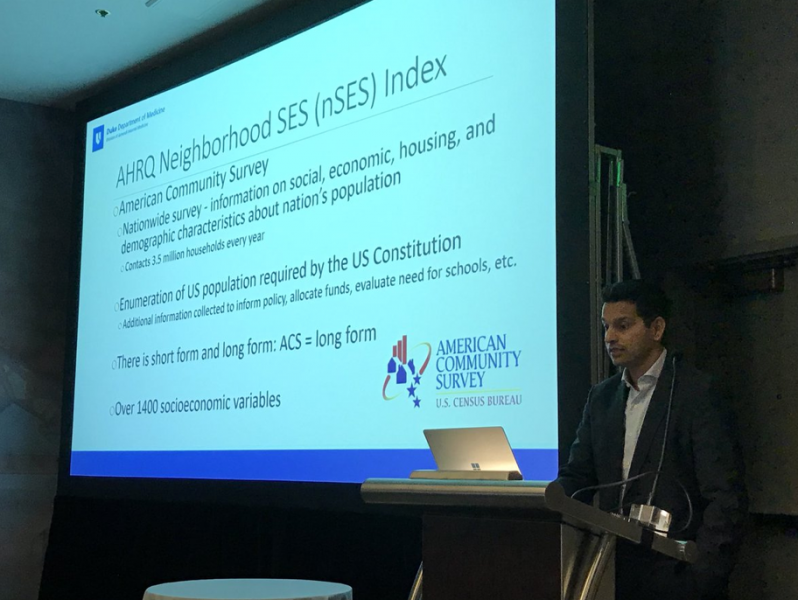
Post submitted by: Nrupen Bhavsar, PhD, Assistant Professor of Medicine, Duke General Internal Medicine.
The American Medical Informatics Association (AMIA) Informatics Summit annual meeting was held from March 12-15 in San Francisco. The conference brought together researchers interested in translational bioinformatics, clinical research informatics, informatics implementation, and data science. The conference is large enough that you meet someone new every year but intimate enough that you always spot a familiar face in the crowd. This year was no different as many attendees and presenters were from Duke.
The Keynote:
The keynote speech this year was delivered by Lesley Curtis who talked about real world evidence generation to address the scarcity of high quality evidence that can inform clinical practice guidelines. The subsequent presentations, posters, and conversations at the conference built upon this idea, identifying approaches to address the technological and methodological challenges of using real world evidence for clinical research that can impact patient care.
 Presenting Acute and Chronic Disease Outcomes:
Presenting Acute and Chronic Disease Outcomes:
Along those lines, I presented work that focused on using multiple sources of data, including neighborhood socioeconomic status (nSES) and clinical data from the electronic health record, to predict multiple acute and chronic disease outcomes during the “Clinical Data Mining and Machine Learning” session. Using clinical data from the Duke University Health System and Lincoln Community Health Center and nSES data from the AHRQ nSES index, my colleagues and I found that nSES did not improve risk prediction for clinical outcomes such as hospitalizations related to myocardial infarction, stroke, influenza, asthma, and accidents, as well as service utilization such as emergency departments visits, above and beyond the demographic information found in the EHR. Although there are notable limitations to our work (e.g., only included residents of Durham County), the results support the idea that although neighborhoods are associated with health outcomes, information about neighborhoods may not improve risk prediction beyond demographic information already in the EHR.
Next Year:
It was great to see the exciting work being conducted in the informatics community within and outside of Duke. I looking forward to seeing the advances in the field at the meeting next year.
Click to view conference slides for the Year-in-Review: